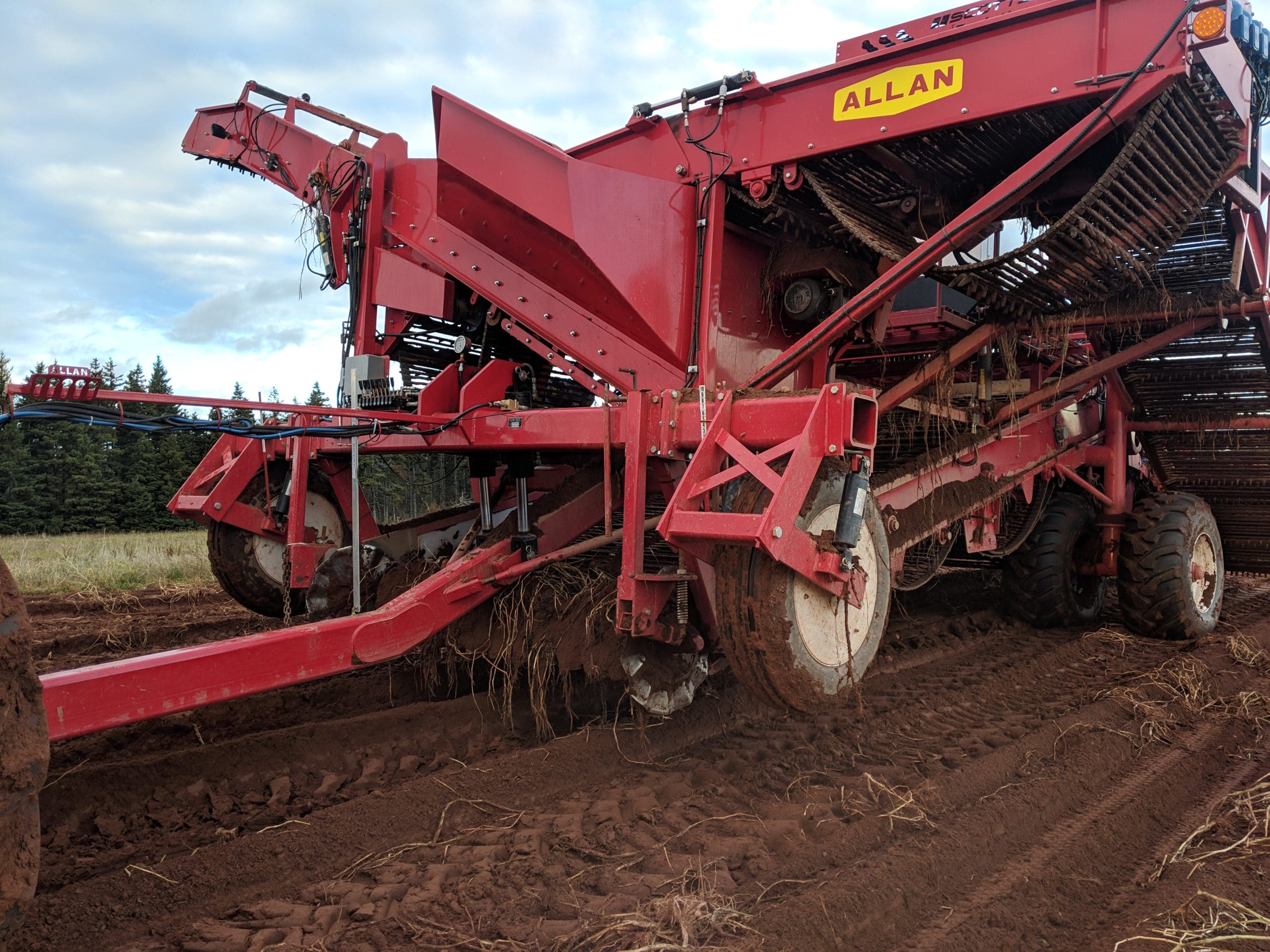Allan Equipment has taken a new spin on the potato harvester by making an electric model.
When Trent Cousins and Daniel vanSchalkwyk bought Allan Equipment in 2013, they knew they needed to update the manufacturer’s potato harvester.
“Locally, there was a couple farmers that were farming fruits and other vegetables, they had used electricity to power harvesters, as well as the former owner of Allen Equipment. He had tried an electric harvester 10 years before that,” Trent Cousins, president at Allan Equipment, says in a phone interview. “Nobody found anything wrong with it, it worked pretty good. It just wasn’t the norm.”
Most potato harvesters are powered by a power take off on the tractor or hydraulically. Allan Equipment’s electric harvester has a diesel generator on it for power. By being electric, Cousins says the machine is safer, cleaner and easier to operate and service.
“Our harvesters use off the shelf electrical components. They are easily found across North America and more affordable than most of our competitors’ conventional drive components. They are longer lasting than conventional hydraulic and PTO drive lines, and therefore provide a lower cost of operation going forward,” he explains.
The electric harvester also lets growers adjust the speed of each section of it independently. Cousins says this allows for more capacity as growers can better calibrate the machine to the field conditions they are digging by adjusting belt chain speeds.
In the Field
In 2015, Allan Equipment started selling their electric harvester models in Prince Edward Island. The harvester pleasantly surprised customers when they sent the first model out into the fields and no major issues were reported.
The electric harvester has been well received since launching. Cousins estimates 75 per cent of the harvesters they sell now are electric models, with the rest being lower capacity conventional models for smaller farms. Some growers have traded their electric harvesters in, but only because they wanted newer models with improved features.
Colton Griffin with WP Griffin Inc., a table and processing potato farm in Elmsdale, P.E.I., bought a four-row electric harvester from Allan Equipment in 2020. The farm’s previous conventional harvester was getting old, and it was becoming harder to find replacement parts. Neighbours were using the electric harvester and it interested Griffin. He reached out to Allan Equipment, who let him test a three-row unit in his fields one harvest.
“It didn’t quite have the capacity that I was used to with the four rows. It just didn’t have as much room in the main apron for cleaning clay out of the product,” he explains in a phone interview.
After testing the three-row unit, Griffin decided a four-row unit would be a better fit for him. He then purchased a four-row electric harvester from Allan Equipment.
“Everything has advantages and disadvantages, but I guess I see a lot more advantages today. It just puts the product out so much cleaner and so much less maintenance,” he says, comparing his new electric harvester to his previous conventional model.
This year Allan Equipment expanded their sales footprint, selling their first four-row electric harvester outside of P.E.I. in Manitoba. They demoed a model last year in Manitoba and this year have a few demoing in the United States.









